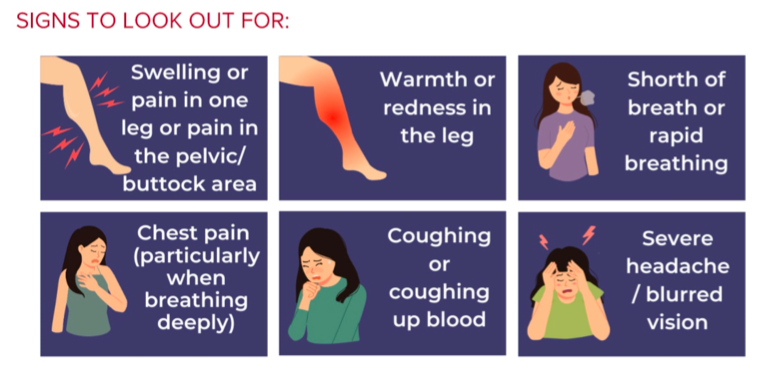On top of dealing with hyperemesis symptoms, HG can also increase the risk of other conditions in pregnancy. Below is some information on these, how to recognise them, and how to get treatment. For most of these, the best way to reduce your risk is to get the correct treatment for HG.
Thombosis/VTE
In pregnancy and the six weeks afterwards, the risk of blood clots is increased for everyone. It is preventable and treatable, but is the most common cause of death in pregnancy and postnatally in the UK and Ireland (MBRRACE report 2024) so it is something to be aware of.
For HG patients, risk of blood clots can be increased even more because of dehydration, and immobility - i.e. not being able to leave bed or the couch for most of the day for 3+ days in a row.
What can you do?
- Take your medications as prescribed and do your best to stay hydrated - some tips here.
- Try to get out of bed and move a few times a day, even if just for a few minutes. Tell your doctor if you are not able to leave bed/home due to your symptoms.
- Ask your medical team about assessing your risk of blood clots and if so, if they have taken hyperemesis into account. This is particularly important if you have had blood clots before, if you have a family history of them, or if you have had Covid recently.
- Your risk should be re-assessed throughout your pregnancy as your HG symptoms change.
- You may need to do additional things to reduce your risk, such as wearing compression stockings or taking anti-clotting medications.
- Pay attention to any signs of thrombosis and get medical help urgently if you notice any of the following:

Thanks to Thrombosis Ireland for this graphic. More information and translations is available in this PDF and on their website thrombosis.ie
